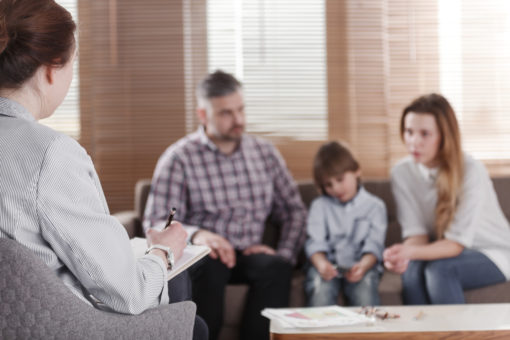Updated 4/25/25 by Colleen Sproull
Conduct disorder is a mental health disorder characterized by aggressive, antisocial, violent behavior in youth that violates the rules and boundaries of people, animals and property. It is true that rebellious, disobedient behavior occasionally occurs in children and adolescents. However, conduct disorder is distinguished by the intensity, frequency and duration of such disturbing behaviors that disregard social norms.
When is Conduct Disorder Diagnosed?
Conduct disorder is typically diagnosed in youth ages 8-16. Early-onset conduct disorder occurs in children up to age 10. It is considered more serious than adolescent-onset conduct disorder, which has a higher probability of behavioral improvement since symptoms present between ages 10-17. If conduct disorder persists into adulthood, it is referred at antisocial personality disorder.
Conduct disorder is more commonly diagnosed in males than females, with the ratio of boys to girls with conduct disorder ranging from 4:1 to 12:1. These statistics may be due to language deficiencies and impulse control issues more present in young males. However, girls may also be diagnosed.
Signs and Symptoms of Conduct Disorder
Conduct disorder involves breaking rules set by authority figures without regard for the consequences. According to the DSM-5, at least three of the following symptoms must be present for at least one year to meet the criteria for a conduct disorder diagnosis.
- Getting into verbal and physical altercations
- Bullying, threatening and intimidating others
- Abusing and torturing animals
- Avoiding others, being antisocial
- Using substances while underage
- Breaking curfew consistently
- Stealing, cheating and lying
- Setting things on fire
- Destroying property
- Running away from home
- Skipping classes and extracurricular activities
What Causes Conduct Disorder?
The following psychological, neurodevelopmental, environmental, socioeconomic, genetic and biological factors may contribute to the development of conduct disorder.
- Unstable home life, abuse, domestic violence, neglect, poverty, crime
- Parents with psychiatric and/or substance use disorders
- Seizures, traumatic brain injury or abnormal electric activity in the brain (EEG) can cause aggression
- Hostile or ineffective parenting styles – either harshly punitive or lacking structure and boundaries
- Exposure to drugs, alcohol, smoking or malnourishment in utero
- Large classes with little teacher oversight and individualized attention
- Lacking a positive role model
- Exposure to gang violence
- Hanging out with trouble-making peers
Risk Factors and Effects of Conduct Disorder
Co-occurring conditions are one of the most prominent risk factors for conduct disorder. Developmental delays can also be a risk factor contributing to learning disabilities, difficulties with social skills and below-average intellectual capacity. As a result, children and teenagers with conduct disorder are more likely to have low self-esteem and lack strong relationships, leading to disruptive and destructive behavior. Unfortunately, they are also more prone to suicidal ideations and suicide attempts.
Mood and anxiety disorders that commonly coincide with conduct disorder are:
- Attention-deficit/hyperactivity disorder (ADHD)
- Oppositional defiant disorder (ODD)
- Depression
- Anxiety
- Bipolar disorder
- Trauma
- Substance use disorders
Conduct disorder impairs the ability to function. Children and teens misbehave so much that their education is affected. They usually receive frequent disciplinary action from teachers. Skipping classes puts children and teens behind the learning curve, and they may be at a higher risk of failing out or dropping out of school.
Children with conduct disorder also have poor relationships. They struggle to develop and maintain friendships. Their relationships with family members usually suffer due to the severity of their behavior. Adolescents with conduct disorder are also more likely to have legal problems. Substance abuse, violent behavior and a disregard for the law may lead to expulsion from school and even incarceration.
Conduct Disorder vs. Oppositional Defiant Disorder (ODD)
Conduct disorder is often confused with ODD, but these are two distinct disorders with some symptom overlap. Children and teenagers with conduct disorder and ODD both have issues respecting authority figures and will go above and beyond to break the rules and act in defiant and disobedient manners. However, those with conduct disorder will engage in delinquent and antisocial behaviors as mentioned above.
Children with ODD can have the potential to develop this disorder if they begin to exhibit the same behaviors. However, this is uncommon as most children grow out of ODD. Most children with conduct disorder also grow out of this disorder. However, if conduct disorder persists past the age of 18, then it becomes antisocial personality disorder. Thus, oppositional defiant disorder, conduct disorder, and antisocial personality disorder are all part of the same dissocial spectrum.
Treatment for Conduct Disorder
Conduct disorder can be improved with individualized and group therapy as well as parental training. Parents are taught techniques such as effective discipline and positive reinforcement. Behavior management strategies help to increase safety in the home if a child or teen is aggressive or violent.
If a co-occurring disorder such as ADHD or depression is found, it is very helpful to provide treatment for that condition in conjunction with conduct disorder. Discovery Mood & Anxiety Program offers adolescent programming with varying levels of care including residential (RTC), partial hospitalization (PHP) and intensive outpatient (IOP) catered to the specific treatment needs of your teen.
Contact us today for more information on how to help your child or teen with symptoms of conduct disorder or another mental health condition.
More From Discovery Mood & Anxiety Program
10 Ways to Support Your Child’s Mental Health
Warning Signs of Behavioral Disorders in Teens
How Mental Health Issues are Rampant on High School Campuses
References
https://www.ncbi.nlm.nih.gov/books/NBK470238/
https://www.yalemedicine.org/conditions/conduct-disorder
